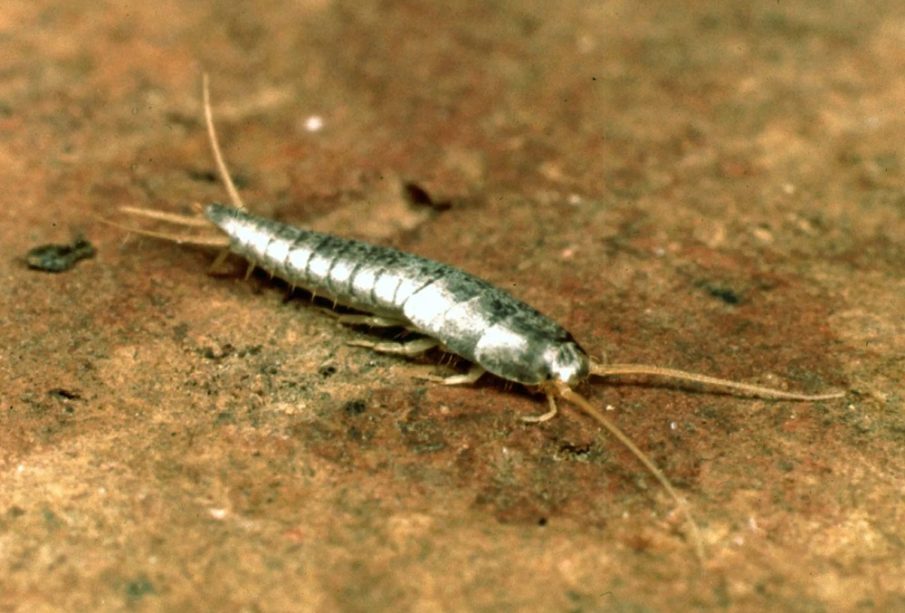Everything You Need To Know About Silverfish.

If you’ve ever seen a silverfish, you know just how creepy, almost alien-like they are. Just a couple sizes bigger, and they would most definitely be a real-life nightmare!
But, despite their strange appearance, silverfish are very much like us, seeking warmth, a good book and a satisfying snack.
As the name suggests, silverfish are a blue-grey colour but can also be brown or white. Still, the most distinguishable feature is their three-pointed tails. In addition, they are proficient escape artists thanks to the slippery scales on their bodies that protect them from being captured by larger insects, such as spiders. Their slick, thin bodies allow them to creep into crevices and the binding edge of books to feast on the glue, which is one of its favourite things to eat.
Silverfish typically go unnoticed, especially if you don’t pick up on the signs that they are living in your home. Still, they can cause damage and are an unpleasant sight, so give Old Island Pest Control a call for professional extermination services or visit our website to learn more about silverfish and how to get rid of them.
What Do Silverfish Eat?
Every living organism is constantly on the search for its next meal, and silverfish are no exception. Despite their small size, these insects have an impressive appetite, especially when their preferred food, such as books, old photos, bedding, tapestries and wallpaper glue, are easily accessible.
Other foods of interest include dead insects, shampoo, carpets, cardboard, and items in your pantry such as pasta, cereal, flour, and anything starchy.
Unfortunately, even if you manage to minimize access to these items thinking they will eventually die, silverfish can go months without food, which means they will still be multiplying in numbers.
Common Hiding Places For Silverfish.
Silverfish prefer dark and damp areas in your home, so you may find them more in the basement, attic, bathroom and kitchen. However, these insects can survive in any climate, so you may also find them in lighter, warmer areas of your home as well.
Where Do Silverfish Come From?
If you’ve noticed silverfish in your home, they most likely originated from the soil around the house. In addition, you could bring them into your home in storage boxes or books, but the most likely cause, however, is weather change. Silverfish are moisture-loving insects, so they will seek entry into your home when the weather becomes dry. But, they will also creep into your home when the soil is too wet, so if you have leaking plumbing in the foundation of your house, you may see an increase in silverfish.
Do Silverfish Bite?
Although you may occasionally find silverfish in your bed, there is nothing to worry about. These insects have mandibles that they use to eat; however, they are not nearly strong enough to pierce human skin. So, they cannot bite you.
How To Get Rid Of Silverfish.
If you’re tired of being plagued by silverfish and feeling squeamish in your own home, there are a few things you can do to minimize and prevent their presence. Firstly, make sure the perimeter of your home is sealed up. Cracks and small holes are perfect entryways for these tiny insects. Second, ensure that doors and windows seal properly when closed and keep outside areas clean and dry.
You can also try to declutter your home from paper and old books and apply waterproofing or a damp seal on walls inside bathrooms, laundry rooms and the basement to prevent excess moisture that will attract the insect.
The good news is that it’s never too late to address a silverfish infestation. They do not pose a direct threat to you, and the most they can do is ruin your favourite book or sweater.
Still, having silverfish in your home is not ideal, but Old Island Pest Control can take care of it. As a leading pest control specialist in BC, we are always on standby to provide professional and efficient extermination and remediation services.
So, contact us today for fast and affordable silverfish extermination.










